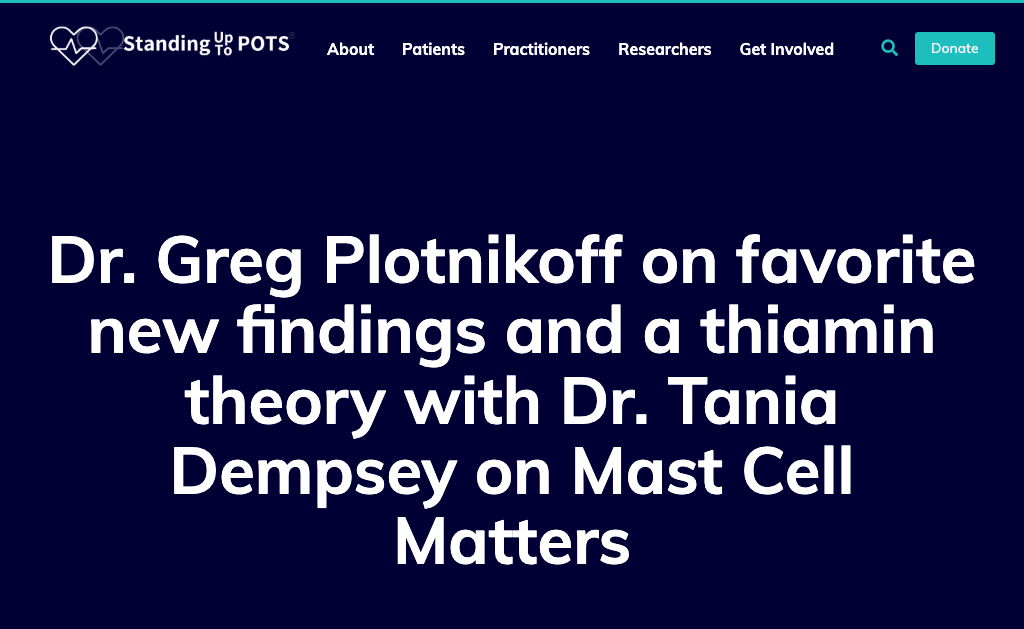Dr. Greg Plotnikoff on favorite new findings and a thiamin theory with Dr. Tania Dempsey on Mast Cell Matters
Drs. Plotnikoff and Dempsey discuss emerging dysautonomia/MCAS insights fresh from the Dysautonomia International conference. New data from a hypermobile EDS cohort (N≈4,000) show an average of 25 comorbidities, with pain, dysautonomia, and GI problems topping the list; forthcoming hEDS genetics point away from classic collagen genes toward autoinflammatory pathways, dovetailing with MCAS and long COVID biology (including possible B12 transport issues). A major clinical takeaway is a thiamine (B1) theory: early thiamine deficiency often presents with GI dysmotility (fullness, nausea, early satiety, constipation) and can mimic severe abdominal crises or contribute to POTS via impaired acetylcholine production and signaling; serum B1 is a poor marker, so consider functional clues (elevated pyruvate; branched-chain amino/keto acid patterns; phytanic:pristanic ratio). High-risk factors include restricted/gluten-free diets, cooking/storage losses, sulfites, mycotoxins (fumonisins), gut microbes with thiaminase activity (e.g., Bacillus subtilis, Candida, H. pylori), PPIs/antibiotics/metformin/diuretics, and GJ-tube feeding that bypasses absorption sites. Practical options: IV thiamine (often with magnesium), better-absorbed forms (allithiamine/lipothiamine or benfotiamine), and dietary alliums if tolerated; consider B12 (possible transport issues) and CoQ10 pathways as additional targets. Dempsey highlights frequent riboflavin (B2) deficiency in MCAS, with potential mast-cell–stabilizing and migraine benefits. Both emphasize “fundamentals first”: correct nutrient gaps (including methionine/methylation support on plant-based or gluten-free diets) to aid histamine clearance and autonomic/GI function before escalating pharmaceuticals; see Plotnikoff’s open-access paper on key nutrient questions for symptomatic patients on plant-based diets.
